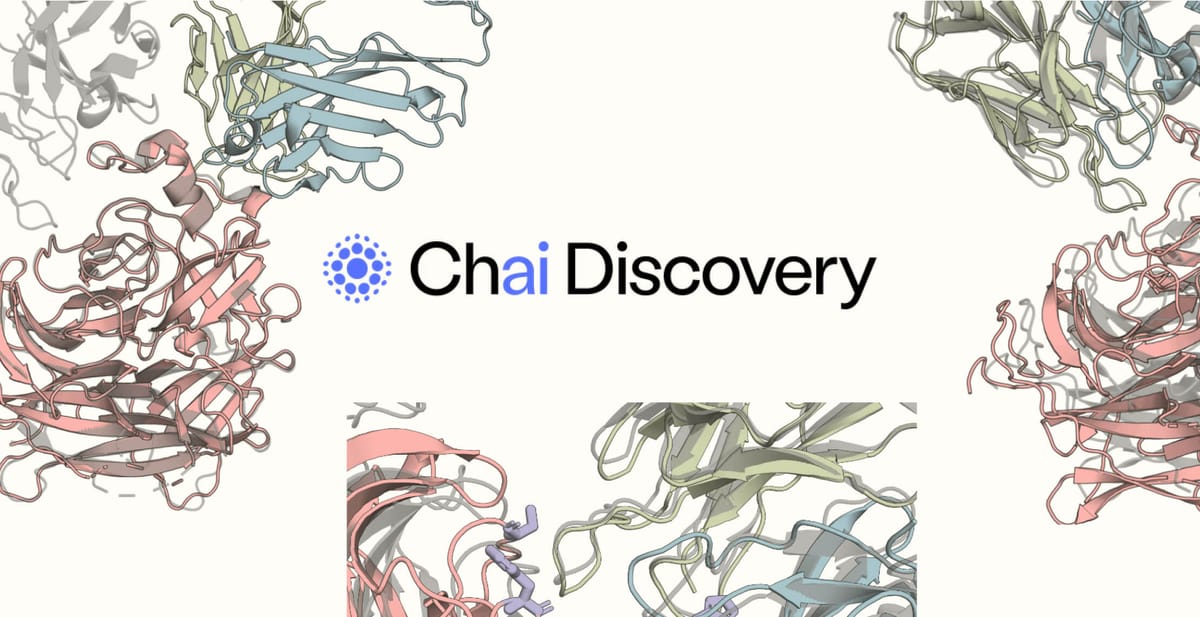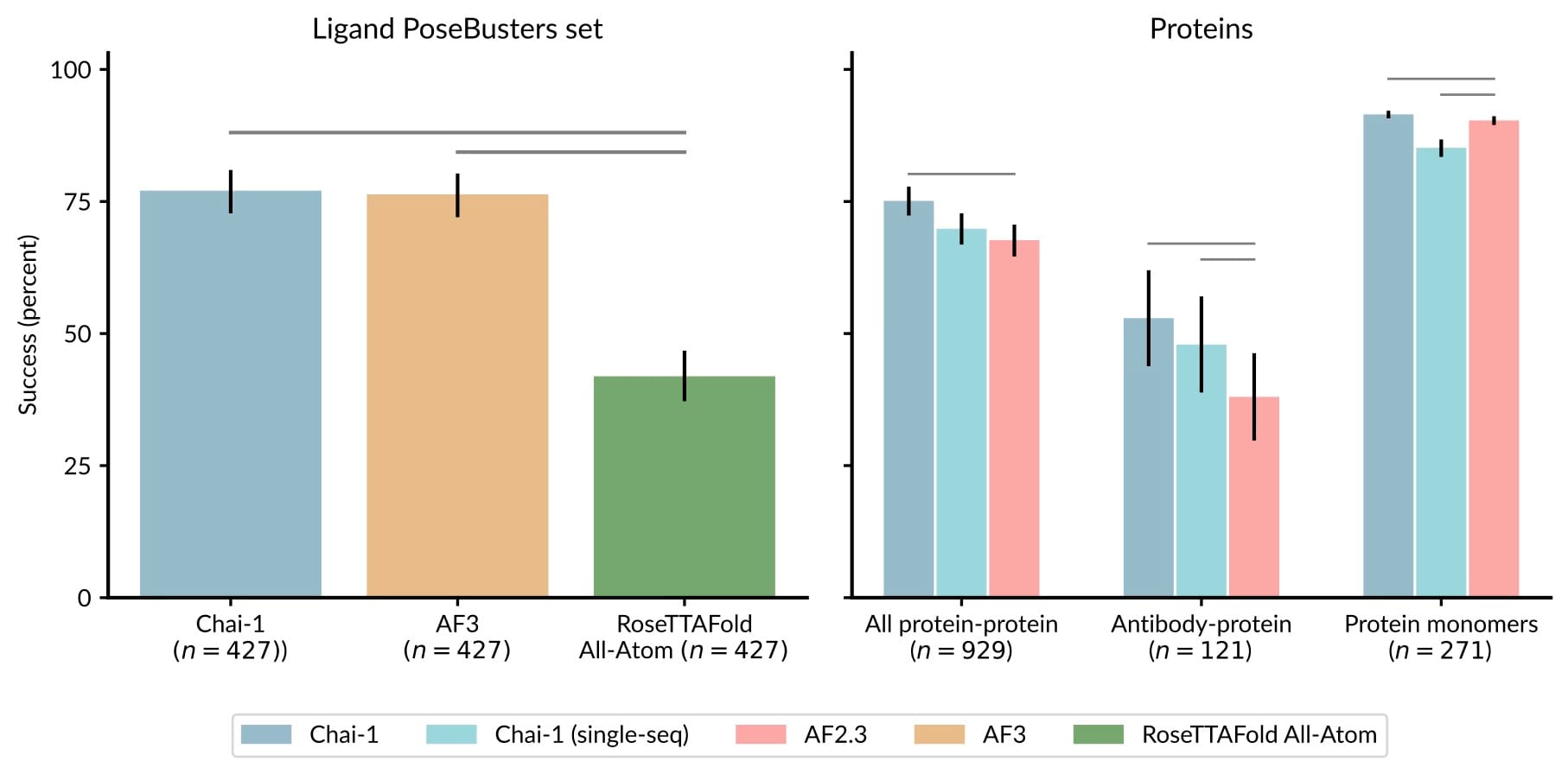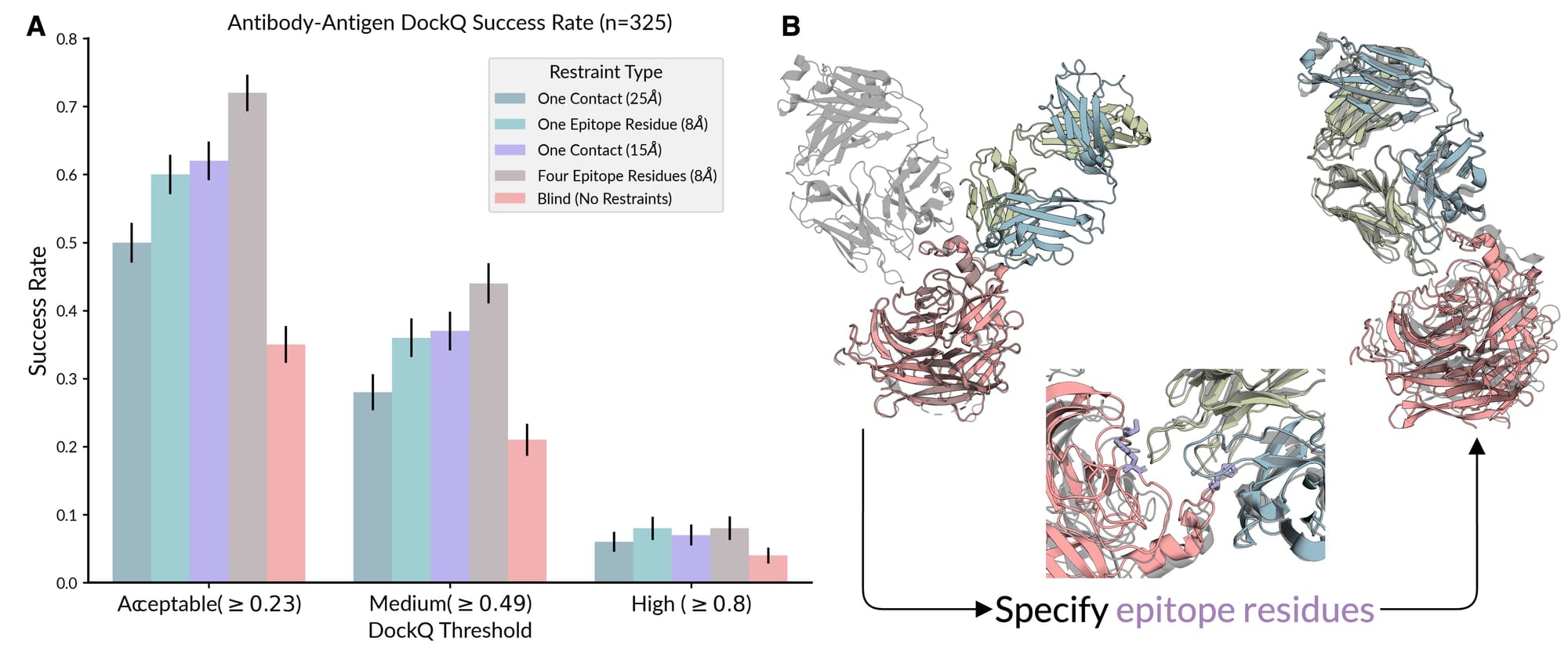
Chai Discovery has released Chai-1, a new AI model that rivals AlphaFold3 and pushes the boundaries of molecular structure prediction. This multi-modal foundation model performs at state-of-the-art levels across various tasks crucial for drug discovery and biological research.
Chai-1 enables unified prediction of proteins, small molecules, DNA, RNA, and other biomolecular structures. It matches or exceeds the performance of leading models like AlphaFold 3 on several benchmarks. On the challenging PoseBusters protein-ligand benchmark, Chai-1 achieves a 77% success rate, comparable to AlphaFold 3's 76%.

A key innovation of Chai-1 is its ability to generate accurate predictions from single protein sequences without requiring multiple sequence alignments (MSAs). In single-sequence mode, it outperforms existing models that rely on MSAs for tasks like predicting protein multimer structures.
The model can also incorporate experimental constraints, such as data from epitope mapping or cross-linking mass spectrometry. When provided with these constraints, Chai-1's performance improves significantly, enhancing applications like antibody engineering, where the accuracy of antibody-antigen structure prediction can double with the use of even minimal contact data. Researchers can prompt the model with new data to refine predictions in real-time, making it a highly adaptive tool for complex biochemical studies.

Chai Discovery is making Chai-1 freely available via a web interface for both academic and commercial use. The model weights and inference code are also being released as an open-source software library for non-commercial applications. This open-source release of a frontier model is noteworthy, especially considering DeepMind's shift towards a closed-source approach with AlphaFold 3 and the creation of Isomorphic Labs, an Alphabet division focused on monetizing their technology.
Researchers and developers can access Chai-1 via the company’s website or download the library from GitHub to integrate it into their own workflows

